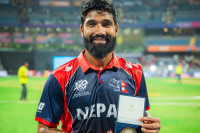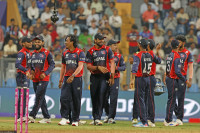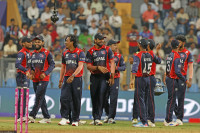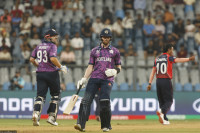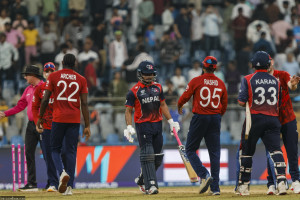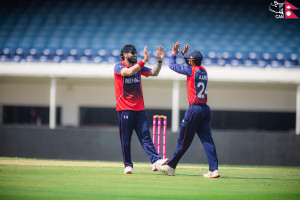Sports
Nepal finish as runner up with a record haul of 206 medals
Powerhouse India’s absence in major games, high altitude, cold weather and home advantage contributed to Nepal’s dramatic medal haul.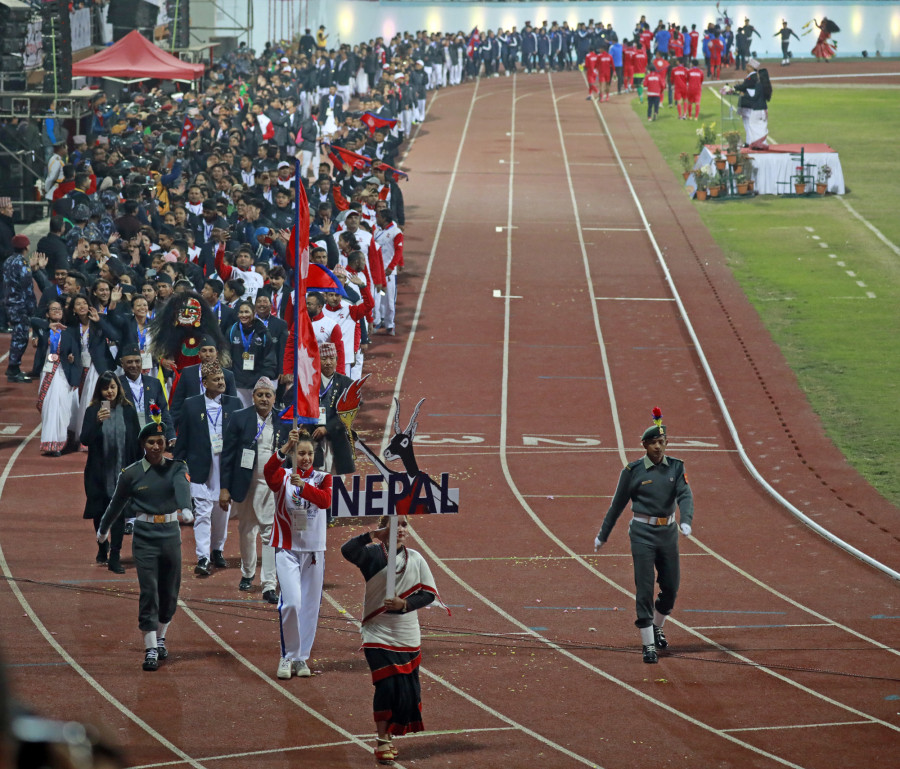
Prajwal Oli
Taekwondo, karate and swimming were among the big winners for hosts Nepal who wrapped up the 13th South Asian Games with a record haul of 206 medals on Tuesday, including 51 golds surpassing their previous best mark in 1999, when Nepal won 31 golds.
As the Games returned to Nepal for the third time, they finished runner up for the second time behind regional powerhouse India who bagged 312 medals, including 174 golds. India have secured top finish in all editions of the Games since its inception in 1984.
Nepal’s previous best run in the Games was during the eighth edition when Nepal played host in 1999. They won 31 gold, 10 silver and 21 bronze medals then.
For Nepal, taekwondo accounted for the highest number of gold (12) followed by 10 in karate in the 10-day sports extravaganza. Out of the 26 different events, shooting and volleyball (men's volleyball and beach volleyball) were the only events where Nepal finished empty-handed.
Karateka Manday Kaji Shrestha became the first Nepali athlete to win double gold at the same edition of the Game, securing top finish in individual kata and team kata. Ayasha Shakya also achieved the mark shortly after Shrestha, winning individual and team poomsae gold in taekwondo.
Swimmer Gaurika Singh was the major highlight for hosts Nepal in the overall Games. The 17-year-old not just ended Nepal's gold drought in the individual event, but also secured a record four gold, two silver and three bronze medals. She equalled legendary taekwondo player Deepak Bista's mark of four gold medals achieved from the eighth edition of the Games to the 11th, stretching from 1999 to 2010.
Athletics and boxing were also big achievers. Nepal bagged their first-ever middle distance gold in athletics as Santoshi Shrestha secured top finish in women's 10,000m race and Gopi Chandra Parki's in the men's 5,000m race. Nepal also won marathon gold for the first time after 24 years as Kiran Singh Bogati secured top finish in the 42.195km race clocking 2 hours 21 minutes 7 seconds in his international debut. It was the first marathon gold for Nepal after 1995 Games in Madras.
Boxing ended a two-decade-long gold drought as Nepal claimed three gold medals with the third coming on the last day of the Games from Sanil Shrestha. Nepal's last two boxing golds came during the 1999 Games from current chief coach Prakash Thapa Magar and Ramchandra Thapa Magar.
The 1999 Games featured a total of 162 gold medals in 12 events. The current Games have drawn a total of 2,715 athletes competing for 316 gold medals in 26 events. However, both taekwondo and karate failed to meet the mark of 14 gold medals each at the 1999 Games. Nepal had won a total of 65 medals, including 31 gold and 10 silver to finish second in the standings.
Both taekwondo and karate were introduced in 1999 and Nepal were the powerhouse of the Games. Nepali coaches visited countries like Bhutan and Bangladesh to train martial arts players then. "After the ninth edition of the Games, other countries improved a lot in the martial arts, but we remained where we were in the past," Bista had said in an interview with the Post.
Bista admitted that home advantage played a part in Nepal's impressive run in the current Games in addition to coordination between the National Sports Council and the taekwondo association in team preparation ahead of the Games.
“I have experienced that athletes get better training and facilities whenever we play hosts,” said Bista, adding that it is essential to come up with proper plans and policies to give continuity to similar results in future editions of the Games. "The sports authority have been putting all the games in the same basket. But it is high time we classify the games as per their potential and formulate special plans to excel in them," he said.
Sports analysts Diwakar Lal Amatya points out the notable absence of South Asian powerhouse India in some of the major events, cold weather and home advantage as the contributing factors for Nepal’s dramatic rise in the medal standings. He also warned that for Nepal to maintain the same rhythm in future editions of the Games will be an uphill task.
As claimed by Amatya, India have participated in only 18 events. "They did not compete in karate despite having one of the best teams in South Asia,” said Diwakar Lal Amatya, a member of the International Council of Sports Science and Physical Activities.
“Nepal would not have won so many medals in karate had India fielded their team,” he said, acknowledging that Nepal's success can be credited partly to Kathmandu’s cold weather as well. “High altitude and cold climate are other factors. The players who are used to playing at a low altitude can’t give their best at high altitudes," said Amatya, referring to incidents during the Games’ athletics events.
Two Bangladeshi athletes—Zahir Raihan and Abu Taleb—withdrew from 400m sprint finals and had to be rushed to the hospital after they suffered from breathing problems. But the country’s sports authorities dismiss such suggestions, arguing that Nepal’s success was possible by design rather than by accident.
Member Secretary of the National Sports Council Ramesh Kumar Silwal claimed a combination of focused preparation, overseas training, proper nutrition, and home advantage resulted in the home country’s impressive showing at the Games.




 13.12°C Kathmandu
13.12°C Kathmandu


